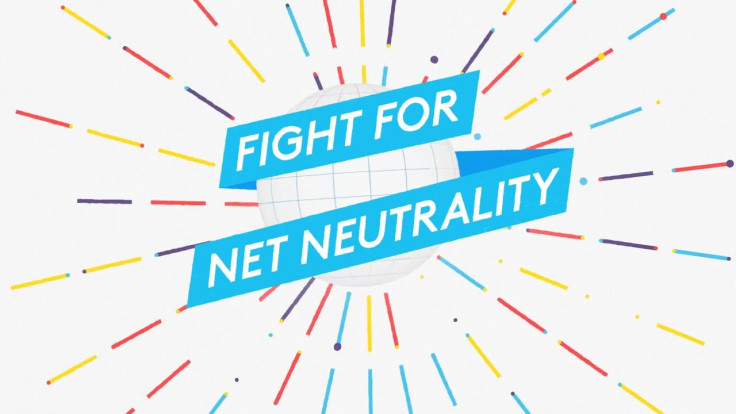Who Is My Senator? Here's Who To Call, Contact About Net Neutrality

The United States Federal Communications Commission (FCC) announced Tuesday that it will take up a vote next month on a proposal that would repeal current net neutrality protections designed to ensure a free and open internet.
Because the FCC is an independent agency, it is free to regulate interstate communications by radio, television, wire, satellite and cable as it sees fit. Policy is voted on by a commission of five appointed representatives—two Democrats, two Republicans and the commission Chairperson, who is also a Republican.
However, it is possible for Congress to take action to preserve net neutrality protections by putting into law the same rules that the FCC intends to repeal. Doing so would put net neutrality on a stronger legal footing that wouldn’t allow the rules to come and go with each new administration.
Given the recent challenges Congress has had passing legislation, it may seem unreasonable to think the governing body could craft and pass legislation that would ban internet service providers from throttling or slowing of internet speeds, blocking content and providing favorable treatment to services that are willing to pay more.
Placing public pressure on Congress may provide the lawmakers with enough motivation to urge the FCC to back down from its planned December 14 vote to repeal net neutrality rules and instead allow the representatives to craft a legislative solution.
There are a number of organizations rallying to save net neutrality that can help individuals found out who their representatives are and how to contact them. Some even provide a script to make delivering the message easy.
Here’s where to go to call your representatives about net neutrality:
Battle for the Net has been one of the primary organizers it in ongoing fight to defend net neutrality. The organization helped set up the “Day of Action” protest earlier this year in which hundreds of websites and tech companies encouraged users to call or email their representatives to encourage them to save net neutrality.
Battle for the Net has a simple system in which all a person has to enter is their phone number. Battle for the Net’s automated system will call and ask for a zip code, which it will use to connect the caller to their representatives.
Battle for the Net provides a script for the caller, and adds their call to a counter tracking how many total calls have been made.
Free Press doesn’t make the call for a person like Battle for the Net, but it gives the caller all the information they need to contact their representatives. Free Press asks for an email address and ZIP code, which it uses to determine who to call.
Free Press includes a sample script and has a brief follow up that asks the person who they called and how the call went.
Five Calls
Instead of calling members of Congress, Five Calls encourages a slightly more direct route. The civic action non-profit provides contact information to call FCC Chairman Ajit Pai’s office directly to encourage the head of the commission to drop his plan to strip net neutrality protections.
Five Calls offers a brief script, as well as directions on what to do if leaving a voicemail. The service has a brief follow up asking the caller how the call went and tallies the number of calls made to the Chairman.
Electronic Frontier Foundation
Calls are always the most effective method to push representatives to action but emails never hurt. For those who would rather not make a call, the Electronic Frontier Foundation has a valuable tool to create and customize an email that can be sent directly to members of Congress.
Global Net Neutrality Coalition
For those not sure why net neutrality is so important to so many, the Global Net Neutrality Coalition has created a resource that helps show the importance of a free and open internet. The site highlights the status of net neutrality around the world and shows what the internet is like for those who are not protected by the rules.
© Copyright IBTimes 2024. All rights reserved.





















